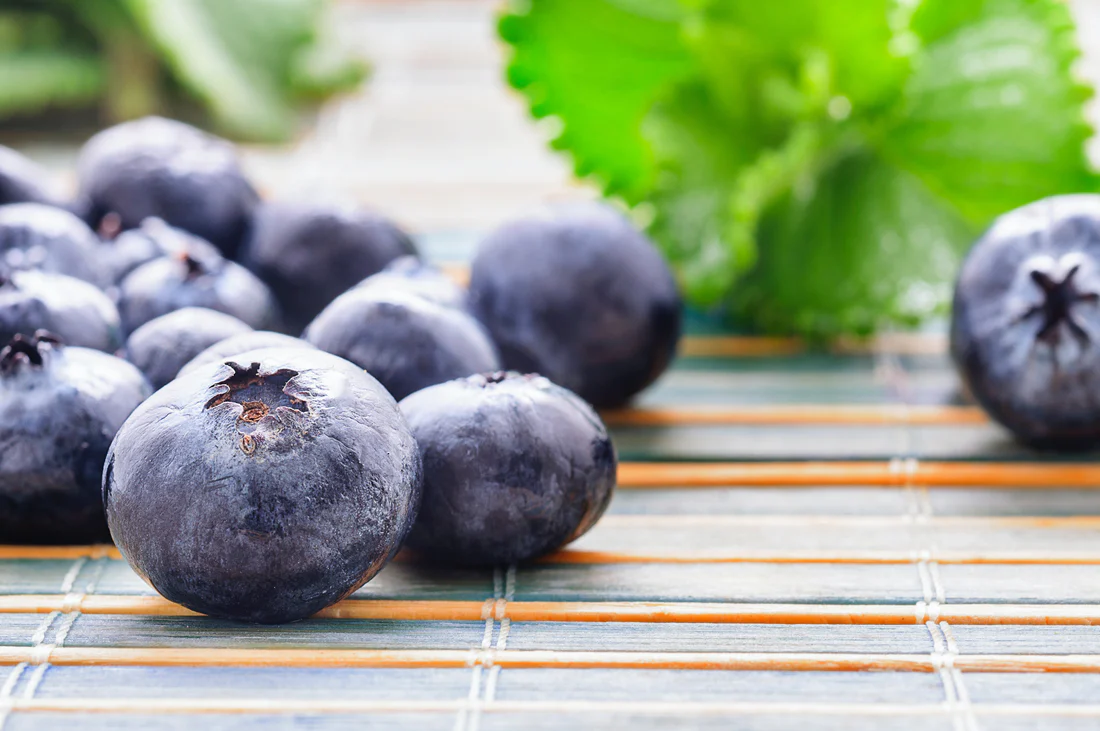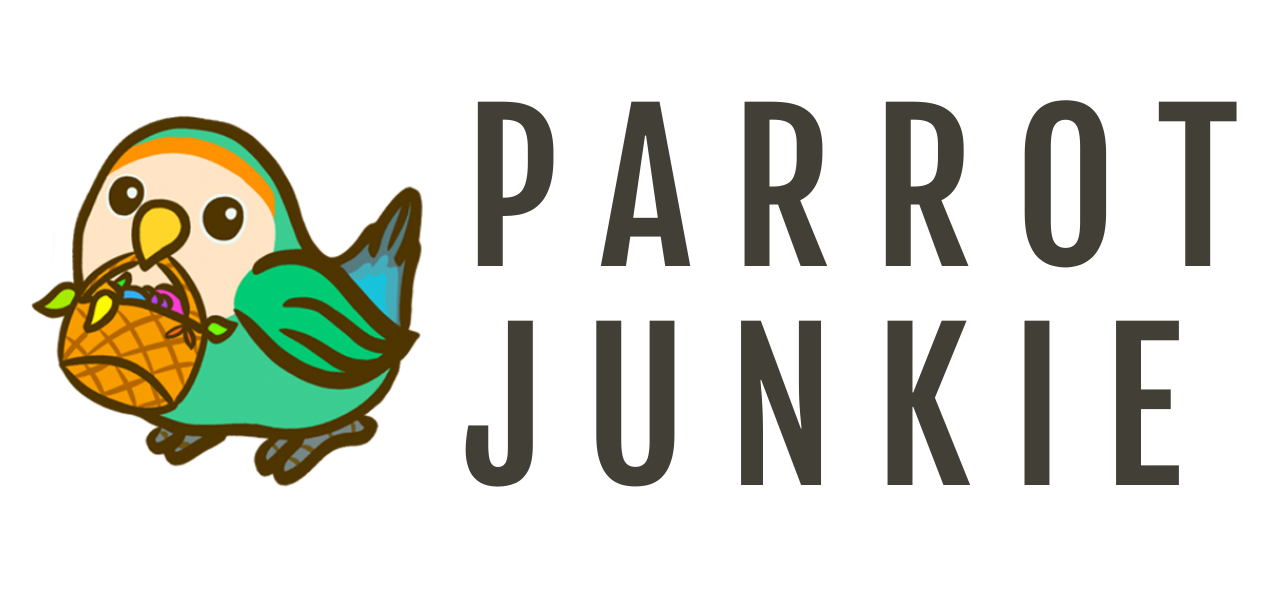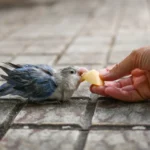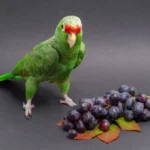
Can Parrots Eat Blueberries – Safe or Toxic?
Parrots can eat blueberries, in fact, they really enjoy eating them. Blueberries are one of the healthiest fruits you can give your parrots because they contain lots of vitamins and antioxidants.
While blueberries contain essential nutrients, it’s important that you don’t give your bird too much of it. This article will give you some fun facts and insights about everything you need to know about feeding blueberries to your parrots.
THE VERDICT: Can parrots eat blueberries? YES, parrots can eat blueberries! Read why below!
Jump To Section
Are Blueberries Safe for Parrots?
Blueberries are safe for parrot consumption. However, just like any other fruit, blueberries are also often sprayed with pesticides, which may not be easy to remove. So, to avoid harming your bird, it’s recommended that you buy organic blueberries. Organic blueberries are not treated with harmful, synthetic chemicals, so they are not a cause of alarm for your parrot.
What are the Nutritional Benefits of Blueberries?
Blueberries make an excellent and healthy snack choice for parrots. They are a great source of vitamins, fiber, antioxidants, and minerals. The dose of nutrients parrots get from the blueberries benefits them as follows:
Vitamins
Blueberries are very rich in vitamin K, vitamin C, and vitamin A. Most parrots hardly get vitamin A in their diet, so feeding your birds blueberries is a good way to supplement them with vitamin A.
Vitamin K is responsible for:
- Heart health
- Bone health
- Blood clotting
Vitamin A is responsible for:
- Promoting growth and development
- Improving immune system
- Enhancing good vision
- Boosting yellow and red pigmentations
Vitamin C is essential for the overall health of your parrot. Apart from boosting the immune system and promoting healing, vitamin C also plays a key role in lowering blood pressure levels.
Fiber
Blueberries are high in fiber, which aid in digestion. Fiber generally keeps the digestive system of a parrot healthy. It also relieves birds from constipation.
Antioxidants
Blueberries are an excellent source of antioxidants, and are probably the fruit with the highest source of antioxidants. They protect the parrot’s body from free radicals that cause damage to the cells, which in turn exposes your parrot to the risk of developing cancer.
Minerals
Blueberries are fully packed with minerals including potassium and manganese.
Potassium keeps your bird’s blood pressure in check, promotes muscle mass, and lowers the chances of heart and blood vessel diseases.
Manganese is a very important mineral found in blueberries that help in:
- Supports fat and carbohydrate metabolism
- Aids in calcium absorption and blood sugar regulation
- Essential for brain and nerve function
Nutritional Content of Blueberries
A 100g of blueberry contains the following quantity of nutrients:
- Calories: 57
- Carbohydrates: 14.7g
- Sugar: 10g
- Water: 84%
- Proteins: 0.7g
- Fat: 0.3g
- Fiber: 2.4g
Can Parrots Eat Blueberry Skin?
Parrots can eat blueberry skin. It is not necessary to peel the blueberries to serve your parrot the fleshy part. You can chop the fruit into smaller pieces before feeding it to your feathered friend. Parrots absolutely love eating blueberries together with their peels too.
What About the Blueberry Seeds?
Parrots can consume the entire blueberry including the seeds. The seeds are not known to cause any harm to parrots.
Can a Parrot Drink Blueberry Juice?
Yes, parrots can have blueberry juice. It can be as simple as crushing blueberries to obtain the pulp and juice, then offering the liquid juice to your parrots!

How Many Blueberries Should I Feed My Parrot?
For many fruits, the advice is usually to not offer too high a quantity to your parrot, as fruits are often high in sugar. For sedentary birds like most of our pet parrots, diets high in sugar can be detrimental to their health over the long term.
Blueberries are moderately high in sugar, but generally they are not known to have much negative impact on blood sugar levels, likely due to the high levels of bioactive compounds such as anthocyanins. Thus, it is generally alright to feed more blueberries to your parrots, but they should be part of a diverse, mixed diet to ensure that your birds are not just getting their nutrients from one single source.
How to Feed Blueberries to Your Parrot
Blueberries can be served as:
- Fresh
- Dried (with no additives or preservatives)
- Freeze-dried
In general, original, fresh fruits are the best as they contain the most amount of nutrients. When choosing fresh blueberries for your parrot, you should avoid offering them the moldy ones because they can be harmful to your bird’s health.
When initially introduced blueberries, some parrots may be afraid or skeptical as the fruits are dark in color and often looks very different from their usual food. If your parrot seems afraid of blueberries during the initial introduction, try to find other ways of showing them that blueberries can be eaten.
You can start off by eating the berries yourself – many parrots take interest in what their owners are eating, and may be curious to take a bite too! You can also cut up the berries to expose the paler inner flesh, to see whether your bird might be less afraid of them.
What to Watch Out For After Feeding Your Parrot Blueberries
Many owners have experienced tricky situations after feeding their birds blueberries!
Firstly, blueberries are juicy and highly colored. Often, parrots like to chew and fling their food around, which means that the area can get quite messy after feeding! If your parrot has a tendency to do this, you may wish to construct some enclosed areas or guards to catch the pieces of fruit being flung around, so that your walls and floors will not be affected.
Secondly, due to the strong color of the blueberries, many owners have been shocked at seeing dark-colored poop from their birds. Sometimes the poop looks almost black in color, which may cause owners to worry that their bird has an internal injury! Fret not – this discoloration of poop is to be expected after your bird has eaten some blueberries. It will only be cause for concern if the discoloration does not go away after several hours.
Final Notes
Blueberries are one of the healthiest fruits you can give your parrot. Not only do they provide additional nutritional benefits, but your pet bird will definitely love them for their juiciness and sweet taste. The entire blueberry, including the peel and seeds, are safe for them to eat.
Remember to feed blueberries in moderation. Wash the blueberries well to get rid of pesticides. If you are not sure about being able to remove pesticides thoroughly, it may be best to buy organic blueberries instead.
Parrot Junkie www.parrotjunkie.com
Copyright © 2021-2024. All rights reserved.



Be the first to leave a comment